Judeo-Christian Cosmology: A Comparative Perspective
The primary source for Judeo-Christian cosmology is can be found in the early part of the Bible[1], primarily in Genesis of course[2]. The challenge when looking at the Bible from a purely academic and historical perspective however, is that one needs to account for, and be keenly aware of, preconceived notions and interpretations that fall squarely into the category of what many would consider to be religious dogma. For much like the Islamic tradition surrounding the Qurʾān (or the Koran as it is sometimes translated), the Bible in conservative circles is considered to be a divinely inspired work, to be taken “literally”, which of course very much muddies the proverbial waters when trying to look at the cosmological account in the Bible as a reflection of ancient Judeo-Christian culture and history rather than as a rule book and play book for modern day Christian life or the Word of God.
From a comparative perspective then, one of the most prominent academic approaches to analyzing ancient cosmological accounts, it’s imperative to look at the Bible from the same perspective, with the same analytical approach and tools, as we look at (in this blog in other postings for example) at Ancient Egyptian, Sumer-Babylonian, and Greek cosmological accounts and narratives, staying clear as much as possible from any discussions or debates regarding the divine nature of the text itself. After all, the literature in the Bible has its own historical context, and was no doubt a compilation of many different narratives from a variety of ancient cultures and authors, as are all ancient texts and myths really, and therefore is subject to the same translation and interpretive challenges, analytical limitations really, as other ancient texts[3]. As some have said, and perhaps it is no understatement, “The translation of the Hebrew Bible into Greek between the 3rd and 1st centuries BCE is said to be one of the most lasting achievements of the Jewish civilization – without it, Christianity might not have spread as quickly and as successfully as it did.“[4]
With these principles and context in mind then, let’s try and take a fresh look at Judeo-Christian cosmology in the same historical and socio-political context as we have looked at other cosmological narratives from ancient Mediterranean civilizations in order to try and garner common elements, elements that arguably have strongly influenced much of modern Western thought with respect to mankind’s view of his place in the universe, mankind and its place in the cosmos as it were. For one of the premises of our analysis is that in studying ancient cosmology (and the “theo-philosophy” inherent to it), much light could be shed on some of the fundamental principles, ideas really (in the Platonic sense), that provide (at least part of) the intellectual foundation of modern (Western) man’s perspective on reality, his place in the universe, the nature of the divine, and his perspective on the origins of the universe in toto.
For starters however, it’s always interesting – and very relevant – to point out that the prevalence and continued influence of the Christian faith over such a long time is arguably more a reflection of the power and importance, and lasting influence, of the life and tale of Jesus more than anything else, which leaves us with a great sense of irony of course as the Bible had played such a strong role in the history of Christianity, and the history of the West really, even though of course a) Jesus had nothing to do with the authoring and writing of the Bible, this task was performed by later scholars and theologians with their own axe to grind so to speak, and of course b) Jesus was a Jew.
The part of the Bible that had to do with the life of Jesus is referred to as the Four Gospels, the so-called “Good News”, and they consisted of four different accounts of the life of Jesus. Each Gospel was named after its supposed author (Matthew, Mark, Luke and John) and each was authored decades after Jesus had died, at the earliest. Furthermore – and this is a very important point often overlooked by not only academics and scholars of the Bible, but by Christian theologians as well – one would have to make a fairly significant leap of faith to categorize the Gospels as firsthand accounts, and of course as such, are subject to various interpretative and translational factors that are characteristic of all ancient oral traditions[5].
To be fair, the Gospels were authored generations after Jesus lived, rather than centuries or even millennia such as the oral traditions surrounding Homer[6] for example, and therefore can most certainly be looked at as a pretty fairly accurate accounts of the life of the historical Jesus of Nazareth rather than as a clear reflection of mythology, as we find for example in the cosmological texts of other ancient civilizations which in general are reflective of much older oral traditions from much earlier ancient cultures. Having said that, there are still inconsistencies and contradictions in the Gospels as they relate to the historical account of the life and times of Jesus of Nazareth, and these differences should be looked at as a reflection of the creative and imaginative nature of the human mind of the authors of the Gospels, a reflection or testimony on the notion of the ancient oral tradition itself, rather than as examples of historical inaccuracies or contradictions in and of themselves per se[7].
The Bible of course has its Jewish heritage, i.e. the Old Testament, alongside its Christian roots starting with the New Testament which begins with the Four Gospels and the story of the life and times of Jesus (of Nazareth). The Old Testament is of course the place to look when looking for the cosmological viewpoint of the Judeo-Christian faith, and interesting of course to note that Christians effectively borrow, and adopt (as do the Muslims in fact), not just the historical lineage of Judaism and the Jewish people, but also – and of significance in this study of course – the cosmological narrative as well, a narrative that has significant theological and metaphysical implications on the worldview of the faithful. Of note, and a distinguishing characteristic of this study, is how literally much of the contents of the Bible are viewed and interpreted even today (take the debate on Darwinism versus Creationism for example[8]) despite the fact that allegorical interpretations of the Old Testament, and other ancient mythological texts, had been put forth as early as the first and second centuries CE, and earlier, by philosophers and theologians such as Philo Judaeus (aka Philo of Alexandria) for example.
No doubt such literalism and narrow interpretation was also probably present in the ancient cultures as well in their interpretation of their respective mythological and cosmological traditions, hence the need for a more abstract, and again allegorical, approach to their understanding. But given the continued power and presence of the Christian faith and Church into modern times, much of this Christian dogma and narrow interpretation of the Bible persists even today[9], narrow views that take away much of the significance, and true meaning and import, from these ancient Biblical books that have had, and continue to have, such a strong influence on the worldview of the West.
The place to start in looking for true meaning and import of some of the oldest parts of Judeo-Christian literature, is of course in the extant Judeo-Christian textual material itself – namely the Old Testament and New Testament, themselves a compilation and consortium of texts that were deemed to be the most important by the early Christian Church Fathers in the 3 or 4 centuries after Jesus was killed. The good news is that given the later historical context of the extant Judeo-Christian literature, relative to the ancient civilizations of the Egyptians and Sumer-Babylonians by contrast, there is actually a good amount of extant literature to work from – material that in its development and organization reflect not only the evolution of Christianity itself (which evolves in parallel to Western civilization for two millennia or so), but also the evolution of language (more specifically the written word, i.e. writing) in the West as well, from the Greek to the Latin to modern day European languages such as English, French and Spanish, languages which all descend directly from the Latin, and ultimately Greek.
By the time Jesus enters the historical landscape, cultural borrowing across the Mediterranean and into Asia Minor had dramatically increased, the cultures and societies of the day more closely connected by trade and travel than in pre-historical times, i.e. relative to the period of the Hellenic lyric poets Homer and Hesiod for example. Furthermore, by the time Christianity takes root in the West, in the Roman Empire specifically which dominated the social and political landscape surrounding the Mediterranean from the first few centuries CE onward for a period of a thousand years more or less, writing and language had evolved to the point of becoming fundamental characteristics of advanced society and civilization itself – not only as forms of communication (i.e. spoken language which clearly characterize and distinguish one society, one people and nation, from the next), but also as the written word as well.
For this period of civilization development is almost identified with the advance of knowledge, philosophy as the ancients called it, which became almost synonymous with civilization. We see for example this period of history marked by the emergence, and cultural significance, of vast libraries like the Library of Alexandria in Egypt well as the emergence of schools for study, e.g. Plato’s Academy in Athens which was one of, if not the, premier place of scholarship and learning in the Mediterranean from its founding in the beginning of the 4th century BCE until at least the first century CE or so. It is this technical invention really, i.e. the written word which is underpinned by the (Greek and then Latin) alphabet, which drives this intellectual development in this period of history and to a large extent facilitated the advancement of civilization both from an economic perspective, underpinning barter and trade (as we see in the first cuneiform tablets for example), but also intellectually as well, which dovetailed not only into fields such as medicine and astronomy, but also political science and theology, fields that were collectively referred to as philosophy in antiquity.
It is out of this period of intense intellectual development in the Mediterranean, a period of intense study and mythological and theological assimilation, that Christianity emerges as the dominant theological paradigm, effectively replacing the Hellenic theo-philosophical tradition which preceded it, but at the same time emerges to a large extent as a direct byproduct, outgrowth really, of the Hellenic philosophical tradition – bolted of course on top of the very ancient, and altogether mythological (rather than rational), Judaic tradition which provided the theological and cultural foundations as it were, whereas the Hellenic philosophical tradition provided its rational foundations.
This is all important background information (intellectual, theological and socio-political) for providing the context within which to consider what seem like fairly straightforward questions regarding the nature, history and origins of the Bible, which of course relate directly to the nature, history and origins of Christianity itself. Even when one attempts to try and pin down the textual tradition, one runs into challenges, reflecting again on this very rich, and varied, historical and intellectual backdrop from which Christianity manifests and takes root as it were. For example, if we look at the wikipedia entry to the Bible, we see straight away some of the challenges of trying to box Christianity into one neat little historical narrative, with one neat and tidy theological interpretation.
The Bible (from Koine Greek τὰ βιβλία ta biblia “the books”) is any one of the collections of the primary religious texts of Judaism and Christianity. There is no common version of the Bible, as the contents and the order of the individual books (Biblical canon) vary among denominations. The 24 texts of the Hebrew Bible are divided into 39 books in Christian Old Testaments, and complete Christian Bibles range from the 66 books of the Protestant canon to the 81 books of the Ethiopian Orthodox Church Bible. The Hebrew and Christian Bibles are also important to other Abrahamic religions, including Islam… [but Islam does not regard them] as central religious texts.
…The Christian Bible is divided into two parts. The first is called the Old Testament, containing the (minimum) 39 books of Hebrew Scripture, and the second portion is called the New Testament, containing a set of 27 books. The first four books of the New Testament form the Canonical gospels which recount the life of Jesus and are central to the Christian faith. Christian Bibles include the books of the Hebrew Bible, but arranged in a different order. Jewish Scripture ends with the people of Israel restored to Jerusalem and the temple, whereas the Christian arrangement ends with the book of the prophet Malachi. The oldest surviving Christian Bibles are Greek manuscripts from the 4th century; the oldest complete Jewish Bible is a Greek translation, also dating to the 4th century.
During the three centuries following the establishment of Christianity in the 1st century, Church Fathers compiled Gospel accounts and letters of apostles into a Christian Bible which became known as the New Testament. The Old and New Testaments together are commonly referred to as “The Holy Bible”.
Many Christians consider the text of the Bible to be divinely inspired, and cite passages in the Bible itself as support for this belief. The canonical composition of the Old Testament is under dispute between Christian groups: Protestants hold only the books of the Hebrew Bible to be canonical; Roman Catholics and Eastern Orthodox additionally consider the deuterocanonical books, a group of Jewish books, to be canonical. The New Testament is composed of the Gospels (“good news“), the Acts of the Apostles, the Epistles (letters), and the Book of Revelation.[10]
So while certainly the core part of the Old Testament and New Testament represent fairly standard, well established, (Judeo) Christian doctrine, we end up around the edges as it were with a variety of “standard”, so-called canonical, versions of the Biblical text, the variants representing differing theological interpretations to at least some degree, even if said differences may seem trivial to the outsider. Of significance though as it relates to this notion of “divine inspiration”, we find that different schools of Christianity do not even necessarily agree on which aspects or parts of the textual tradition are in fact “divinely inspired”. This is not to take anything away from the import of the text, but to shed light on the human interpretative nature of the work, and the theological tradition that surrounds the text, providing a strong argument against any sort of literal interpretation of the text as the Word of God. The same argument could be made of course for virtually all of the extant theo-philosophical literature of ancient times, all of which upon investigation betraying a fundamental human element to their transcription, adoption and standardization to some extent or another – all having been written down, authored, by someone at some time and some place in human history.
Unfortunately in many of the modern day interpretations of the Bible, particularly in the more orthodox religious circles, its historical context and socio-political history is left out and in many respects completely ignored, leaving today’s readers and religious novices looking for answers to modern day problems in a text that is thousands of years old, and is at least two languages away from its original authors. From this author’s point of view, and from any rigorous academic and scholarly point of view, once cannot hope to truly understand the text without understanding the cultural and political context within which it was authored and compiled over the centuries, factors that are all very important in contributing to the final state that the text exists in today[11]. Just as again one must read the cosmological narratives of the Egyptians, the Greeks and the Babylonians Sumer-Babylonian within their proper historical, social and political context to properly understand them, one must apply the same intellectual lens to the Judeo-Christian texts as well despite their persistence, and relevance, in modern society and culture.
So even if you presumed that the original words in the Old Testament did in fact somehow represent the word of God, or were divinely inspired, one still is confronted with the fact that between the words themselves and the reader of said words, you not only have two thousand years of history, but also an oral tradition from which the stories came from, a compiler of the material (by religious authorities as it were into a definitive text and/or version), and various translators of the material itself. All of which serves to cloud and obfuscate the meaning of the text, the meaning to the original author. In other words, the context within which you are reading the Bible must be taken into account when looking to interpret the words and ideas therein. Reason and motive had to be taken into account when reading or interpreting the Bible, especially when reading it in English, translated from the Greek translations of the original Hebrew. Even a cursory look on its origins yields quite clearly that it had a variety of sources, represented a wide range of material across more than just one religious tradition, and was compiled and organized by a third set of hands which quite clearly had the establishment of authority and power as one of their aims.
Moreover, the teachings of Jesus, although central to all of the branches of Christianity practiced today, did not (directly at least) constitute the core set of religious beliefs of the Christian faith. The belief system of the Christians evolved out of, and interdependent to, the Bible, which was compiled and interpolated by many scholars over many centuries, and was in turn compiled with a politico-religious intent – namely to establish the authority of the church and its dominion over the Kingdom of Heaven. Not so different than the Enûma Eliš of the Sumer-Babylonians or the mythos of the Egyptians, each of which ultimately served to (at least at some level) reinforce, and justify, the power of the priesthood as well as the leaders of their respective civilizations. Christianity was no different in this regard.
Origins of the Great Book aside, let us now turn to the underlying cosmological narrative of the Old Testament to glean parallels and commonality, if possible, between the cosmological views of the Judeo-Christian tradition and other ancient Mediterranean traditions such as Ancient Egypt, Ancient Greece, and Ancient Sumerian/Babylonian culture. And for this, one of course must look to the Book of Genesis[13], the first book of the Hebrew Bible and the Christian Old Testament. The basic story in Genesis, which most of are familiar with from any religious history class or time spent at Sunday school perhaps, is that God creates the world and appoints man as his benefactor, but man proves disobedient and therefore God destroys the world via the Great Flood – enter Noah and the Ark. The new post-flood world is equally corrupt, but God does not destroy it, instead calling on Abraham to be the seed of its salvation. Genesis ends with Abraham’s descendants (namely Jacob, i.e. Israel) in Egypt, ready for the coming of Moses and the Exodus.
The mythology and description of the origin of the universe outlined in the Book of Genesis is accepted by both the Jewish and Christian faith, hence its inclusion in all versions of the Bible and in the Torah, so herein lie the modern day parallel to the Enûma Eliš of the Sumer-Babylonians, the various creation myths of the Egyptians, and the Theogony of the Greeks.
Given the import of the story, and its relevance in the viewpoint and perspective of the modern day person, let’s look at the core passage in its entirety, for its probably been a while since the reader has seen it, and it in turn is most certainly required reading from anyone who wants to have an intelligent discourse on the origin of the universe from a Judeo-Christian context. This is how it all began, or so the Church would have us believe.
1: In the beginning God created the heaven and the earth.
2: And the earth was without form, and void; and darkness was upon the face of the deep. And the Spirit of God moved upon the face of the waters.
3: And God said, Let there be light: and there was light.
4: And God saw the light, that it was good: and God divided the light from the darkness.
5: And God called the light Day, and the darkness he called Night. And the evening and the morning were the first day.
6: And God said, Let there be a firmament in the midst of the waters, and let it divide the waters from the waters.
7: And God made the firmament, and divided the waters which were under the firmament from the waters which were above the firmament: and it was so.
8: And God called the firmament Heaven. And the evening and the morning were the second day.
9: And God said, Let the waters under the heaven be gathered together unto one place, and let the dry land appear: and it was so.
10: And God called the dry land Earth; and the gathering together of the waters called he Seas: and God saw that it was good.
11: And God said, Let the earth bring forth grass, the herb yielding seed, and the fruit tree yielding fruit after his kind, whose seed is in itself, upon the earth: and it was so.
12: And the earth brought forth grass, and herb yielding seed after his kind, and the tree yielding fruit, whose seed was in itself, after his kind: and God saw that it was good.
13: And the evening and the morning were the third day.
14: And God said, Let there be lights in the firmament of the heaven to divide the day from the night; and let them be for signs, and for seasons, and for days, and years:
15: And let them be for lights in the firmament of the heaven to give light upon the earth: and it was so.
16: And God made two great lights; the greater light to rule the day, and the lesser light to rule the night: he made the stars also.
17: And God set them in the firmament of the heaven to give light upon the earth,
18: And to rule over the day and over the night, and to divide the light from the darkness: and God saw that it was good.
19: And the evening and the morning were the fourth day.
20: And God said, Let the waters bring forth abundantly the moving creature that hath life, and fowl that may fly above the earth in the open firmament of heaven.
21: And God created great whales, and every living creature that moveth, which the waters brought forth abundantly, after their kind, and every winged fowl after his kind: and God saw that it was good.
22: And God blessed them, saying, Be fruitful, and multiply, and fill the waters in the seas, and let fowl multiply in the earth.
23: And the evening and the morning were the fifth day.
24: And God said, Let the earth bring forth the living creature after his kind, cattle, and creeping thing, and beast of the earth after his kind: and it was so.
25: And God made the beast of the earth after his kind, and cattle after their kind, and every thing that creepeth upon the earth after his kind: and God saw that it was good.
26: And God said, Let us make man in our image, after our likeness: and let them have dominion over the fish of the sea, and over the fowl of the air, and over the cattle, and over all the earth, and over every creeping thing that creepeth upon the earth.
27: So God created man in his own image, in the image of God created he him; male and female created he them.
28: And God blessed them, and God said unto them, Be fruitful, and multiply, and replenish the earth, and subdue it: and have dominion over the fish of the sea, and over the fowl of the air, and over every living thing that moveth upon the earth.
29: And God said, Behold, I have given you every herb bearing seed, which is upon the face of all the earth, and every tree, in the which is the fruit of a tree yielding seed; to you it shall be for meat.
30: And to every beast of the earth, and to every fowl of the air, and to every thing that creepeth upon the earth, wherein there is life, I have given every green herb for meat: and it was so.
31: And God saw every thing that he had made, and, behold, it was very good. And the evening and the morning were the sixth day.[14]
The origin of the universe, and mankind, is described as the creation of heaven and earth by God in six successive days. In the spirit of being organized, the breakdown of God’s activities in this account of the creation of the known universe is as: Light on the first day, Firmament, or Heaven, on the second, the Earth and Sea on the third, lights in the firmament (i.e. Stars) on the fourth day which provides the foundation for the seasons, calendar,etc, living Creatures in the sea and air on the fifth day, followed by animate life on land, or living creatures on the sixth day, along with Humanity in his own image followed by a day of Rest on the seventh day, bringing Creation to an end.
We find here in the Judeo-Christian cosmological tradition a much more structured account of the creation of the universe than we see in the Egyptian, Sumer-Babylonian, or even Hellenic accounts of creation, all traditions which rest primarily – and as such distinguish themselves from the Judeo-Christian tradition in this regard – upon a pantheon, a progression, of divine figures that emerge from the primordial chaos, the abyss or great void, in successive generations to a) provide structure and order out of and from the chaos, and b) ultimately preside over the world of man. The Judeo-Christian tradition distinguishes itself from this more archaic, more mythological narratives by systematizing the creation process in a way, providing a numerological, and astronomical, foundation for the creative process.
However, despite what one might refer to as a more advanced, or organized really, narrative that we find in Genesis, we still see the cosmogony reflect an evolution of the universe out of chaos to a more structured, and ordered form – a form which ultimately consists of man, the heavens and God. We see concept of order personified in the Egyptian tradition as Ma’at[15], a word that comes to signify “truth”, “harmony”, “balance”, and “truth” as well as represent a goddess who presides over these attributes and principles. In the Sumer-Babylonian and Hellenic traditions, Marduk and Zeús respectively reflect these very same principles and ideas – deities that affected, manifested, these basic fundamental universal principles upon which the known, ordered, universe depends upon for its existence, rising to the head of their respective pantheons in the process. In all of these ancient cosmogonies we find the predominance of an anthropomorphic hand as it were, our Judeo-Christian God, that manifests, emerges, out of the primordial void to establish order, which provides the foundations for not only the universe at large, but for humanity as well – the calendar, the seasons, the heavens, the cyclical floods and recession of waters, etc, all of which were core to not just survival but the advancement of society and civilization to a large extent.
One could certainly argue that the earlier tradition and mythology from which the Judeo-Christian cosmogony emerges, to at least some degree had been adapted, or evolved, into a more cohesive and structured account of creation, which included a more unified, and pervasive, anthropomorphic deity – the monotheistic turn as it were. In other words, you could argue that the single and all-encompassing construct of God as reflected in the Judeo-Christian tradition wasn’t necessarily born with (Judeo) Christianity, but evolved from and out of earlier, somewhat more archaic mythological cosmological narratives that provided for a variety of deities to reflect various aspects of creation, all of which emerge out of the great void by a fundamental (male-female) creative process – chaos being anthropomorphized in the older accounts (literally Chaos in the Hellenic tradition which was one of the first primordial deities which is ultimately tamed, or overthrown, by Khronos, the great god of Time) whereas in the Judeo-Christian narrative it playing a more passive role as it were. Regardless, the anthropomorphic nature of the omniscient and all powerful, and fundamental unified and single God, was and is a distinct and marked difference and divergence of the Judeo-Christian cosmological account as compared to its other ancient counterparts in the Mediterranean.
Nonetheless we still find what we might refer to as “remnants” of the older, more archaic and mythological cosmogonical accounts where the concepts of earth, the sea, and land, as well as the notion of order itself (as manifest in the cycle of the seasons, rotation of the stars in the heavens, etc) remain fundamental parts of the creation narrative and as such remain fundamental components of the Judeo-Christian worldview. The concept of order is in fact embedded into the story of creation itself, in that the world was created in seven days (six with a day of rest) and so the calendar, the passage of time, the seasons, and all order that this system of measurement of time represented, was actually part of the creation as opposed to a byproduct of creation as we find in the other ancient cosmogonic accounts. [This notion of order, as it relates to and ultimately equates with, the divine is a core theme of many of this author’s published works in fact, and an undercurrent them of the works of Robert Pirsig as well, who follows a similar line of reasoning (no pun intended) in order to establish a new metaphysics.]
One might conclude then in very much the same way as Reason (and ultimately Science) are children of (the mind of) Man, in the Judeo-Christian theo-philosophical tradition it is order that is the child of God in a sense, a concept that came to be understood in the Hellenic philosophical tradition as Logos, which in turn was adopted by early Christian theologians and apologists in the first few centuries after Jesus as the “Word of God”, a principle which Jesus himself came to represent in a theo-philosophical sense as the divine Logos. In this way, a proper understanding of the Word of God then is not the language in the Bible as divine inspiration, but the divine inspiration of the Creator himself as order out of chaos. It is from a comparative analysis of the various cosmogonic accounts from (Western) antiquity that this idea becomes clear, and misinterpretations – really false interpretations – of fundamental Christian theology are dispelled.
[1] The Bible is the bestselling book of all time; Businessweek on The Bible: “The Bible (2.5 billion copies sold)” (18 July 2005)
[2] The exception to this could be the cosmological perspective as reflected in the Gospel According to John verses 1 and 2 which read, “1: In the beginning was the Word, and the Word was with God, and the Word was God. He was with God in the beginning. 2: Through him all things were made; without him nothing was made that has been made. In him was life, and that life was the light of men. The light shines in the darkness, but the darkness has not understood it.” As translated by Leon Morris in his Gospel According to John, Revised 2nd Edition circa 1995. A full scope of the implications of these two verses and their reflection on Judeo-Christian belief on the nature of the universe and the role of Jesus in it are beyond the scope of this piece.
[3] Albeit given the Latin and Greek roots of much of the treatises that made up the Bible, they could be translated more readily into English than say the Babylonian or Egyptian texts for example.
[4] See http://www.cam.ac.uk/research/news/ancient-bible-fragments-reveal-a-forgotten-history/, quote from Professor Nicholas de Lange.
[5] I spend a good deal of time explaining ancient oral traditions and their relevance on interpreting ancient texts, ancient cosmological texts in particular which are usually the oldest narratives of a given (ancient) civilization in my published works. For a listing of these, see here. With respect to the stories surrounding the life and times of Jesus of Nazareth specifically, stories that not only provide the foundation of Christianity but also make up the core of the New Testament text, Books that are reflective of, and arise from, an ancient oral tradition surrounding Jesus himself: we have the earliest complete extant accounts of the life of Jesus referred to as the Gospels – namely the first four books of the New Testament, Matthew, Mark, Luke and John – are dated to the 4th century AD and the general consensus is that the original texts were written in Greek somewhere in the second or third centuries AD. The exception to this is the Gospel According to John of which a strong argument could be made that it was indeed a first-hand account of some aspects of the life of Jesus and that it was authored somewhere in the latter part of the first century AD, dated by some scholars as early as the late 60s or easy 70s AD. See Leon Morris, The Gospel According to John Revised 2nd Edition for a full exposition on the origins, author, and dating of the Gospel According to John.
[6] Homer is the author attributed to the Iliad and the Odyssey and lived around the 9th or 8th centuries BC according to most Ancient Greek historians. The stories of course center around the Trojan war, and then Odysseus’s epic journey home, stories thought to be based upon historical events to a great extent, dated back to the 12th century BC or so. See http://en.wikipedia.org/wiki/Homer for more information on Homer and the stories of the Iliad and the Odyssey.
[7] Contrast the accounts of Jesus as represented in the Four Gospels with the written, first and second hand tradition surrounding the life of the 19th century Indian sage Ramakrishna for example, the main authoritative firsthand text being Sri Sri Ramakrishna Kathamrita authored by Mahendranath Gupta. This firsthand account of many of the incidents of the later life of Ramakrishna, along with the full biography of his life that was authored by one of his direct disciples Swami Saradananda, were not only transcribed by a direct confidantes and disciples of Ramakrishna, but they were compiled and authored with the benefit of firsthand experience and direct communication with Ramakrishna himself. In the case of his complete biography by Swami Saradananda, the text alludes and refers to much reference and research material, giving as full and complete a factual picture of the life of the great sage as possible despite its spiritual and religious content.
[8] See http://en.wikipedia.org/wiki/Creation%E2%80%93evolution_controversy for material on Darwinism versus Creationism debate, too lengthy a topic to cover here.
[9] Members of the Christian faith in modern day is measured in the billions, and by some estimates is over 2 billion, almost one third of the total population of present day mankind.
[11] As compiled in the King James version of the Bible today – this version being the English translation by 47 scholars of the Church of England in the beginning of the 17th century. The Old Testament was translated from the original Hebrew and the New Testament (for the most part) from Greek. See http://en.wikipedia.org/wiki/Authorized_King_James_Version.
[12] In 313 AD, Constantine (and Licinius, the less well known contributor to the legalization of Christian worship in the Roman Empire), issued the Edict of Milan legalizing Christian worship. The edict stated “that it was proper that the Christians and all others should have liberty to follow that mode of religion which to each of them appeared best”, thereby granting tolerance to all religions, including Christianity and making the empire officially neutral with regard to religious worship; it neither made the traditional religions illegal nor made Christianity the state religion, as occurred later with the Edict of Thessalonica. For more detail, see http://en.wikipedia.org/wiki/Constantine_I_and_Christianity.
[13] Genesis comes from the Greek word of the same spelling meaning origin or source. Although tradition credits Moses as the author of Genesis, Exodus, Leviticus, Numbers and Deuteronomy, the authors of the texts are unknown and unverifiable and look back on Moses as a figure from the distant past. Scholars date the text as a product of the middle of the first millennium BC, somewhere between the 6th and 5th centuries.
[14] Genesis I, King James version.
[15] See http://www.egyptartsite.com/maat.html.

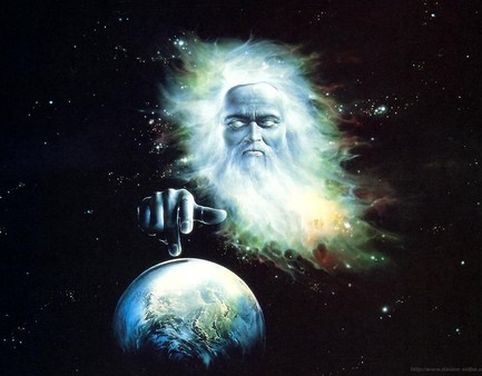
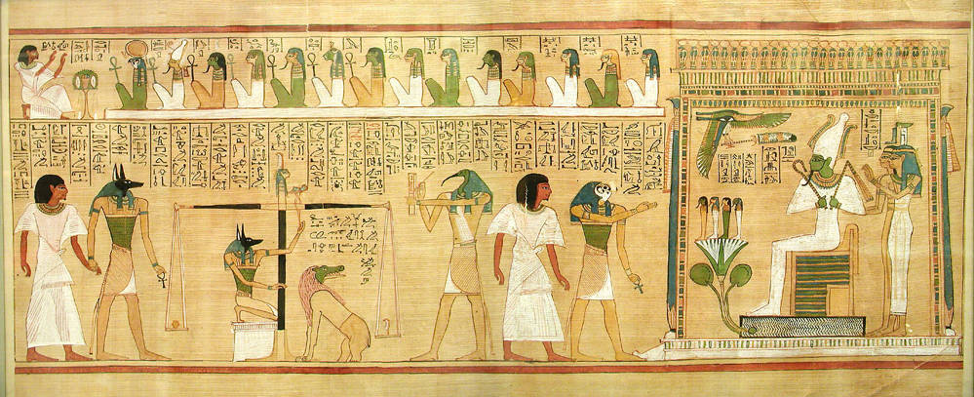
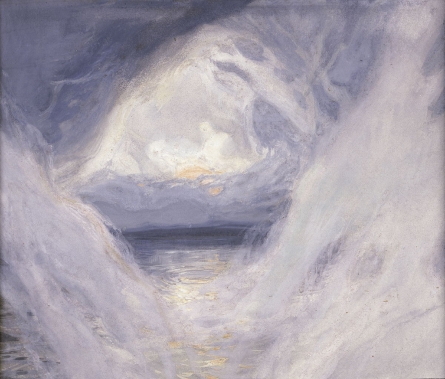
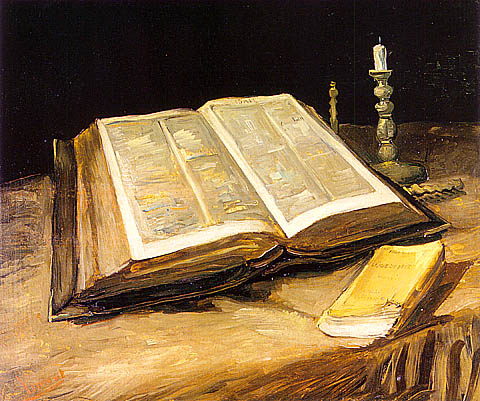
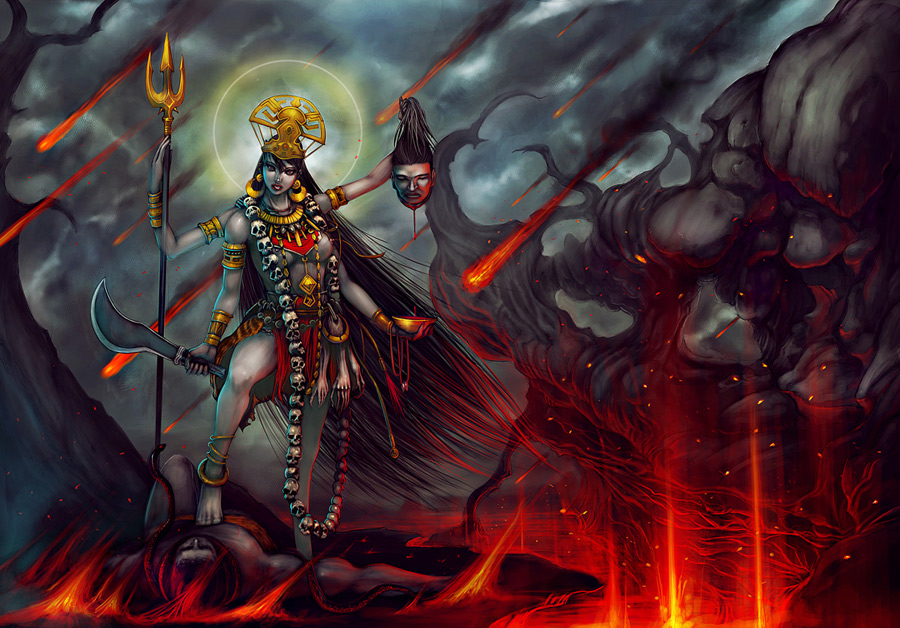
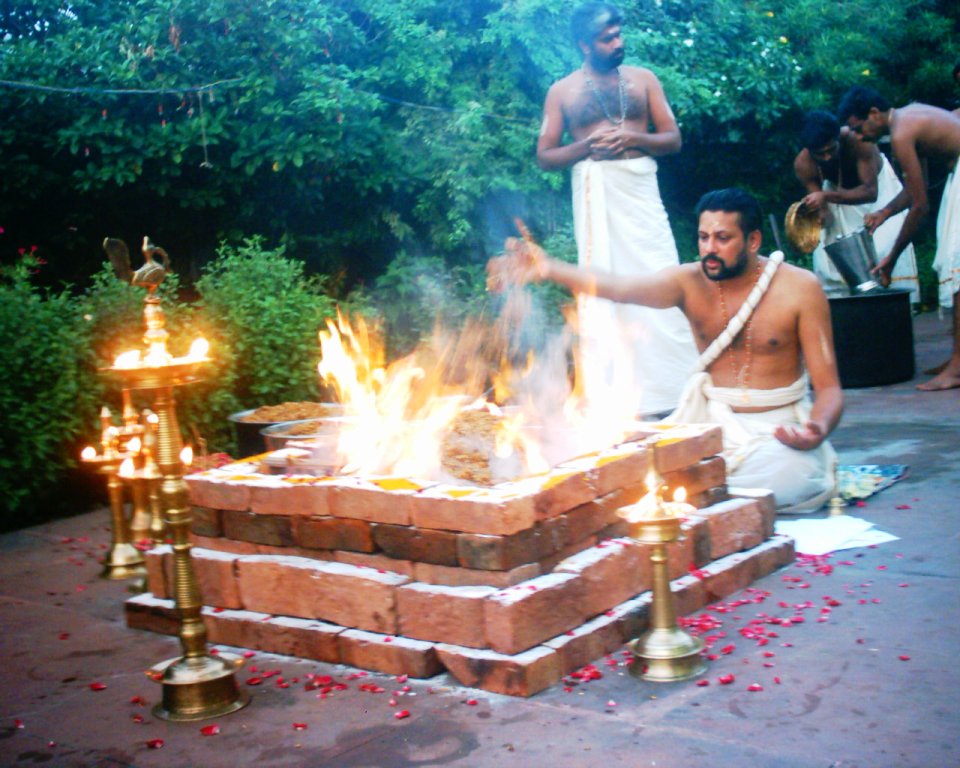
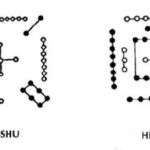

One thing about genesis that has always been of interest to me; it would seem this particular god specified that all beasts, creatures and creeping things were herbivores.
I’ll have to go and read the whole bible again, or at least research it, to find out where all the carnivores and omnivores came from.
The full text of the creation myth from Genesis is in the post actually (from the King James edition), and on the sixth day he created all forms of life and man in his own image and specifically states man’s dominion over all creatures on the planet. I dont see a distinction between herbivores and carnivores in there but certainly main’s place atop the food chain is made pretty explicit in this cosmological tradition, unique to the judeo-christian tradition in this sense from my research at least.
Which goes back again to; “…humans shifted from seeing themselves as part of the natural world to seeking mastery over it.
I also add: “…the predominant monotheistic cults share the common characteristic of defining humanity as the special favourite of the god, superior to all other Life and free to exploit the vital resources of Nature without restraint.”
I think we’ve pretty much reached the same place via different paths.
Agreed on the same place different paths point.
Although I would argue that all species attempt to master the world around them to the maximum extent possible for the sake of survival and continuation of their species, but Homo Sapiens have just done a much better job than the rest of the species on this planet (due to larger brains and higher order abstraction capability for the most part), and have achieved such mastery that the world itself is now not only under their control but has become in jeopardy of resource depletion and massive species extinction due to the extent to which homo sapiens has drained, and continues to drain, the world’s precious resources.
We’ll have to agree to disagree on the “master the world” concept but it’s mostly a matter of semantics and not worth debating.
For instance, saying humanity has done a “better” job makes it sound like a good thing. But that’s just me picking semantic nits.
As far as the world being “under their control”, I think we’re very close to finding out just how very far from reality that is. Any species that cannot, or, as with Homo sapiens, will not adapt and evolve to the natural world and its immutable laws is simply guaranteeing and hastening its own imminent extinction.
Agreed. Thanks again for your comments, interesting thread and topic.
Hello. I am a married American-Peruvian fhater of 2 living and working in Chorrillos. I am looking for a new church. My wife and children aren’t fluent English speakers so I would like to know if you are associated with Spanish speaking church where I can visit with my family. By the way, I was an English teacher at ICPNA for many years and now I have my own Christian elementary school in Chorrillos.
You saved me a lot of halsse just now.